Review: Joyful Sorrow
Joyful Sorrow: Breaking Through the Darkness of Mental Illness
By Julie Busler (Iron Stream Media)
According to the latest statistics from the Centers for Disease Control and Prevention, suicide ranks as the 11th leading cause of death in the United States but 2nd for those ages 10 to 14 and 20 to 34. Annually, more than 48,000 individuals—one person every 11 minutes—commit suicide. Another 1.7 million attempt to take their own lives, and an estimated 12.3 million seriously contemplate the action.
 Christians are not immune. Julie Busler, Oklahoma Woman’s Missionary Union president, well understands those statistics. She lived them, as she details in Joyful Sorrow: Breaking Through the Darkness of Mental Illness.
Christians are not immune. Julie Busler, Oklahoma Woman’s Missionary Union president, well understands those statistics. She lived them, as she details in Joyful Sorrow: Breaking Through the Darkness of Mental Illness.
On the outside, Busler’s world seemed filled with flawless light. She and her husband Ryan served as international workers in Turkey, having previously lived in Canada, Mexico and Germany. Their marriage, their children, her home and her ministry appeared picture-perfect. Her mother-in-law posted glowing social media compliments after a visit, but the 30-something mother of four lived secretly “entrenched in darkness.” Her mother, who had been diagnosed with cancer when the girl was 8, died a “graphic” death when she was 19. Her father subsequently committed suicide.
Eventually, Busler’s mental breakdown led to a Turkish psychiatric hospital and a diagnosis of severe depression and post-traumatic stress disorder. The family returned to Oklahoma, where Busler grew to believe she had become a “burden to her family” and felt suicide was the “courageous choice.” Hospitalization, science, counseling and the light of Scripture, particularly Psalms 88 and 23, and the prayers of Jesus and Nehemiah, subsequently led her to stability and light, although her journey isn’t always smooth.
Secrecy and stigma continue to plague individuals suffering with mental illness, particularly Christians and those in ministry. As Busler pondered the short, sad letter she nearly left behind with her attempted suicide, God interrupted her thoughts. “I could either write a short note of despair or a whole book of hope.”
Joyful Sorrow is the author’s message of hope, bringing joy to others from her sorrow. Read it. Learn from it. Share it. You’ll be thankful you did.
Kathy Robinson Hillman, former president
Texas WMU and Baptist General Convention of Texas
Waco
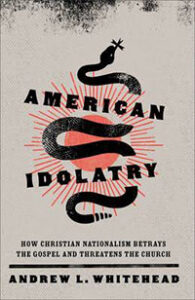 As a trained sociologist, Whitehead recognizes power, fear and violence as tools Christian nationalism uses to maintain privilege, gain greater influence and oppress the marginalized “other.” As a Christian committed to the radical gospel message of Jesus, he sees power, fear and violence as idols—false gods that demand an allegiance and command obedience rightly due only to God. And he recognizes how contrary Christian nationalism is to the example Jesus set.
As a trained sociologist, Whitehead recognizes power, fear and violence as tools Christian nationalism uses to maintain privilege, gain greater influence and oppress the marginalized “other.” As a Christian committed to the radical gospel message of Jesus, he sees power, fear and violence as idols—false gods that demand an allegiance and command obedience rightly due only to God. And he recognizes how contrary Christian nationalism is to the example Jesus set.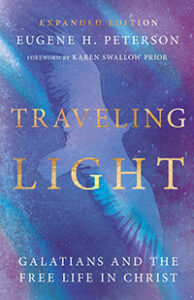 In Traveling Light, Eugene Peterson makes a compelling case for Christian freedom, in contrast either to legalism or libertinism. Peterson walks readers through the Apostle Paul’s letter to the Galatians, providing a wide-ranging and soul-liberating look at 15 aspects of freedom the Christian life offers.
In Traveling Light, Eugene Peterson makes a compelling case for Christian freedom, in contrast either to legalism or libertinism. Peterson walks readers through the Apostle Paul’s letter to the Galatians, providing a wide-ranging and soul-liberating look at 15 aspects of freedom the Christian life offers. The story begins at the end with a funeral on Aug. 24, 2009. In flashforwards and flashbacks, readers experience Stephanie’s mother Kathy’s surprising journey to faith, her Filipino father Jesse’s astonishing turn to Christ, their unlikely call to ministry, and finally 60-year-old Pastor Jesse Morales’ heartbreaking 15-month losing battle to ALS.
The story begins at the end with a funeral on Aug. 24, 2009. In flashforwards and flashbacks, readers experience Stephanie’s mother Kathy’s surprising journey to faith, her Filipino father Jesse’s astonishing turn to Christ, their unlikely call to ministry, and finally 60-year-old Pastor Jesse Morales’ heartbreaking 15-month losing battle to ALS. Some might consider the volume a Bible study while others will read it as a series of short stories or use the 12 chapters in monthly devotionals. Regardless, the New York Times best-selling author divides the accounts into two themes. “Romantic Love” explores the relationships of Solomon and his Song of Solomon bride, Samson and Delilah and Samson’s parents, Adam and Eve, Joseph and Mary, Esther and Xerxes, Ruth and Boaz, and David and Abigail. David naturally bridges to “Friendship Love” with David and Jonathan; Shadrach, Meshach and Abednego; The Friendships of Paul; Job and His Friends; and Jesus and John. The ending emphasizes God’s unconditional love for us, and a broad index augments the volume.
Some might consider the volume a Bible study while others will read it as a series of short stories or use the 12 chapters in monthly devotionals. Regardless, the New York Times best-selling author divides the accounts into two themes. “Romantic Love” explores the relationships of Solomon and his Song of Solomon bride, Samson and Delilah and Samson’s parents, Adam and Eve, Joseph and Mary, Esther and Xerxes, Ruth and Boaz, and David and Abigail. David naturally bridges to “Friendship Love” with David and Jonathan; Shadrach, Meshach and Abednego; The Friendships of Paul; Job and His Friends; and Jesus and John. The ending emphasizes God’s unconditional love for us, and a broad index augments the volume. Four parts comprise the first third of the book: “Origins and Development of the Baptist Movement,” “Baptist Missionary Endeavors,” “Baptist Teachings” and “Baptist Women.” The chapters in each provide treetop surveys of their respective content, complete with bibliographies for further reading.
Four parts comprise the first third of the book: “Origins and Development of the Baptist Movement,” “Baptist Missionary Endeavors,” “Baptist Teachings” and “Baptist Women.” The chapters in each provide treetop surveys of their respective content, complete with bibliographies for further reading.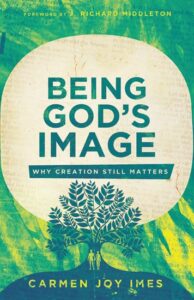 Imes’ writing style is so engaging and accessible, readers will be swept along effortlessly on a rapid journey through the biblical narrative, seeking to answer a basic question: What does it mean to be human? Beginning in the beginning—the first three chapters of Genesis—and moving all the way through to the vision of restored and redeemed creation in Revelation, Imes emphasizes the image of God as central to humanity’s identity and purpose.
Imes’ writing style is so engaging and accessible, readers will be swept along effortlessly on a rapid journey through the biblical narrative, seeking to answer a basic question: What does it mean to be human? Beginning in the beginning—the first three chapters of Genesis—and moving all the way through to the vision of restored and redeemed creation in Revelation, Imes emphasizes the image of God as central to humanity’s identity and purpose.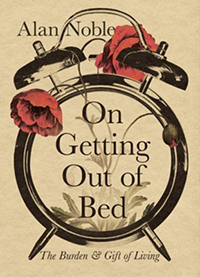 Author Alan Noble understands what that means, based on personal experience. Noble, a professor at Oklahoma Baptist University, describes the decision to get out of bed as essentially “the decision to live.” In spite of panic attacks, depression or other maladies, another day of life is worth the risk.
Author Alan Noble understands what that means, based on personal experience. Noble, a professor at Oklahoma Baptist University, describes the decision to get out of bed as essentially “the decision to live.” In spite of panic attacks, depression or other maladies, another day of life is worth the risk. Using personal experience, the minister’s wife, nurse and mother of five shares her journey and lessons learned through her family’s tables. The book begins with thoughts by Christy’s dad about her growing up table and the values he and her mom sought to instill, including waiting for family supper each evening until Dr. Sudan completed hospital rounds.
Using personal experience, the minister’s wife, nurse and mother of five shares her journey and lessons learned through her family’s tables. The book begins with thoughts by Christy’s dad about her growing up table and the values he and her mom sought to instill, including waiting for family supper each evening until Dr. Sudan completed hospital rounds.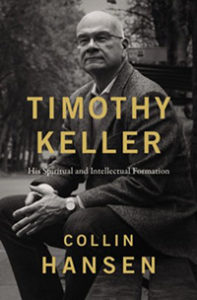 The product of German Protestant and Italian Catholic families, Keller was curious, skeptical, incisive, bookish and socially awkward. He blossomed during his time with InterVarsity at Bucknell University, where his preaching and Bible reading were shaped. The lay-led structure of InterVarsity later influenced the shape of Redeemer Presbyterian Church—the church Keller planted in New York City—as much as Young Life formed the liturgy and discipleship of that church.
The product of German Protestant and Italian Catholic families, Keller was curious, skeptical, incisive, bookish and socially awkward. He blossomed during his time with InterVarsity at Bucknell University, where his preaching and Bible reading were shaped. The lay-led structure of InterVarsity later influenced the shape of Redeemer Presbyterian Church—the church Keller planted in New York City—as much as Young Life formed the liturgy and discipleship of that church.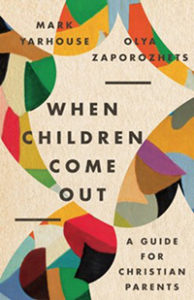 Mark Yarhouse, professor of psychology at Wheaton College, has researched and written on sexuality and gender identity for many years. He and coauthor Olya Zaporozhets have collaborated on other projects, such as Costly Obedience: What We Can Learn from the Celibate Gay Christian Community.
Mark Yarhouse, professor of psychology at Wheaton College, has researched and written on sexuality and gender identity for many years. He and coauthor Olya Zaporozhets have collaborated on other projects, such as Costly Obedience: What We Can Learn from the Celibate Gay Christian Community. The Baker Expository Dictionary of Biblical Words combines some features of a concordance, lexicon and typical Bible dictionary, all rolled into one accessible volume. More than 40 biblical scholars help provide context and meaning of biblical words, from “abandon” to “zeal.”
The Baker Expository Dictionary of Biblical Words combines some features of a concordance, lexicon and typical Bible dictionary, all rolled into one accessible volume. More than 40 biblical scholars help provide context and meaning of biblical words, from “abandon” to “zeal.”